
- Opportunities
- PhD Stories

Marie Skłodowska-Curie PhD fellowship: How to apply and what to expect
- Posted by by Mónica Fernández Barcia
- 15. December 2019
- 7 minute read
Thinking about doing your PhD abroad and looking for funding? Curious about research beyond the horizon of traditional academic institutions? Then the Marie Skłodowska-Curie PhD fellowship for Early Stage Researchers (ESR) in Europe might be just the right fit for you.
If you had told me, four years ago, that I would now be in Germany, about to defend my PhD thesis, I would not have believed you. For years, I was told I had no future in research. To do something else. That a PhD was not for me.
I studied in a master’s program designed to prepare me for academic research. My mind, however, was set on getting a job in industry as soon as possible. After all, I was told that research was not for me.
A ship in port is safe, but that’s not what ships are built for. Grace Hopper, computer science pioneer
I found the right person, the right professor, who would become my master’s thesis supervisor. He encouraged me to continue with what I wanted to do: research. He suggested a position and I ended up applying for a Marie Skłodowska -Curie PhD fellowship (an “Early Stage Researcher” or ESR position). This made all the difference.
Find Marie Skłodowska-Curie PhD positions
As in my case, communication by word of mouth is often the most effective way to find an open ESR PhD position. However, you can find these positions also on websites, such as EURAXESS , MCAA Jobs , or jobs.ac.uk , or directly on the websites of the institution(s) at which the PhD training will take place.
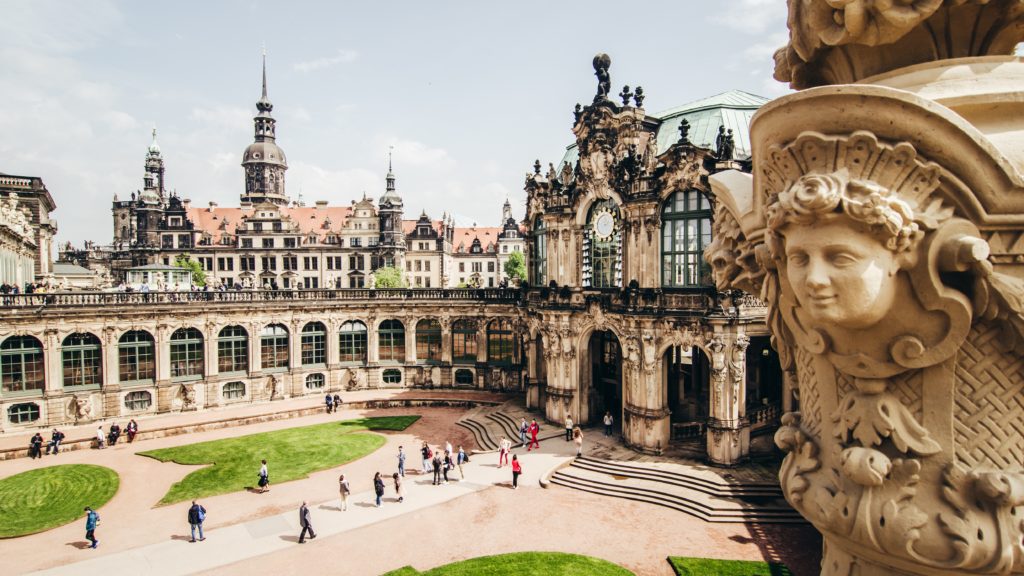
Who can apply?
To be suited for a Marie Skłodowska-Curie PhD fellowship, you
- must be in the first 4 years of your (full-time) research career,
- must NOT hold a PhD yet,
- must apply for a position in a European country where you did not live or work for more than 12 months in the last three years (counted from the hypothetical day of recruitment).
I carried out my studies in Spain (Bachelor and Master), with the exception of one year that I spent in France. Therefore, I qualified for the ESR position in Germany that I was interested in. I applied by sending my CV, a couple of letters of recommendation and a motivation letter.
The first step was done!
In my personal case, it didn’t take long until I heard back. This may be related to the fact that I sent my application on the day of the deadline (a bad scientific habit).
Was I nervous? Not at all – I didn’t have high expectations. At this point, I have been sending out applications for months already. But when I was invited for an interview, oh yes! That’s when I became nervous. After an intense day of interviews, I got my answer: Yes! The consequence: I have been in Germany working on my PhD thesis for the last four years. Yeah!
Starting a PhD? Then find out about the 14 things you should know before!
How the Marie Skłodowska-Curie PhD fellowship works – Innovative Training Networks

I want to focus here on the great experience, but also the challenge of getting an ESR fellowship. As some of you might now, ESR fellowship positions are associated to projects, the so-called Innovative Training Networks ( ITNs ). Each ITN consists of several PhD candidates and their supervisors (from public and private institutions), who form an international network of researchers to explore a specific topic of research.
When you apply, the PhD topic is already fixed. If you accept the position, you will carry out its development. After three years of research, you present your advances in a PhD thesis. This doesn’t sound very flexible, but after some time working on my PhD, I realized that it had become my own project and that it did not matter if the initial idea was not mine.
You are part of a team
One of the greatest parts of the ESR program: you are not alone! You are part of a team of PhD students and experienced researchers from many different institutions (and countries) which are in the same situation as you are. More than that, supervisors, advisors, and trainers are part of your network.
My ITN consisted of 14 PhD candidates and me as the 15th. One month after I started working at my institution in Germany, our first project meeting took place. There, I met all these people who I would call team during the next few years .
These people were my close colleagues and many of them are still my friends today. As our project officer told us, the ITN would be our very first network and will continue to be our contact list for the future. She was so right!
Networking in conferences, workshops or trainings is difficult for many PhD students. Luckily, when you are in an ITN project, this is not a challenge at all. As part of an ITN, every few months you take part in small-sized workshops with your project team members. Experiencing your first networking situations in these workshops makes things easier when you have to go to larger conferences or workshops later on. If you need a little extra help for outside, you may even take part in workshops about “Networking at conferences”.
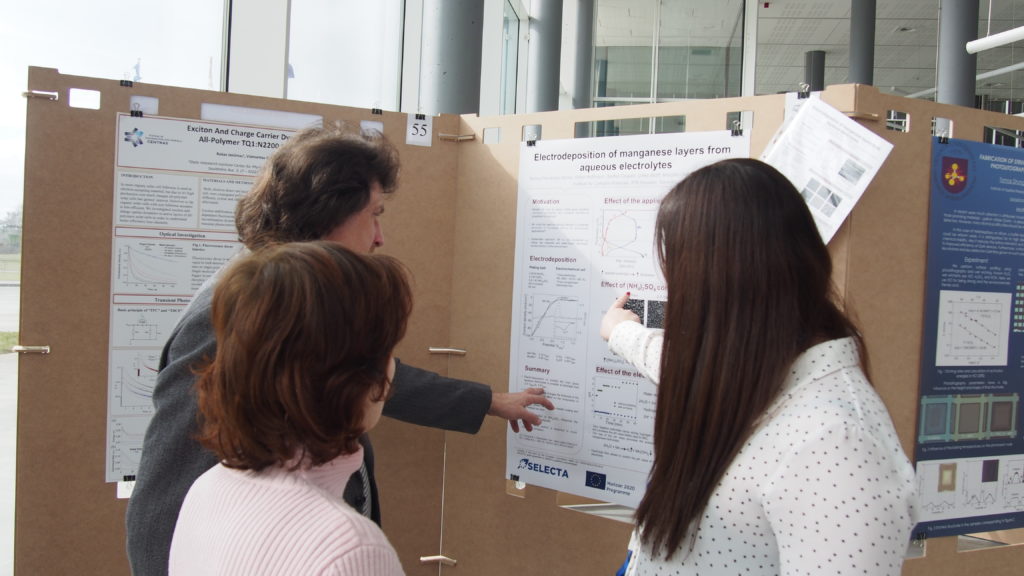
Scientific Support
Regarding science, the support in an ITN is unbelievable. From the very beginning, my network was in place to exchange ideas and support. Each PhD candidate presented their work and progress in every meeting. We discussed any problems or solutions to scientific problems and were sharing experiences about different techniques and materials. I couldn’t have asked for more.
Personal Development and Soft Skill Training
At each of our meetings, in addition to presenting our work and learning about science from experts in the fields, we also had the opportunity to improve our soft skills. You might know the unsettling feeling of being in front of a blank page that is supposed to become an article, an abstract or even an understandable poster. Your ITN will help you figure out how these things work.
Regarding the training in soft skills during these years, my fourteen colleagues and I found ourselves in a situation of great advantage. We had an opportunity that is often hard to come by in common doctoral programs: Trainings about paper writing, poster preparation, oral talks, or other workshops and language courses (for the country you worked in) were covered for us.

Overcoming my fear of public speaking
Three years later, I realized that I had overcome my fear of speaking in public with the help of my program (although not yet completely). The funny thing about it: When I started my PhD, public speaking in English was a real torture for me. Nowadays, studying and learning more about the art of presenting has become one of my hobbies.
Challenges of living abroad
Until here, the experience of doing a PhD as a part of an ITN project must sound great. And it is! Good training, big network, nice people, team spirit… What is usually overlooked, however, are the challenges that ESR fellows need to overcome – some of them every day.
Living abroad is exciting, but can also be difficult to handle. After all, you leave behind your family, your friends, and your comfort zone. English as a language gets you far and is more than enough to handle interactions in academia. But when you move to a country where the spoken language is not English, you will face language difficulties every day.
Facing a new culture, as in my case, may also become a challenge. On the positive side, however, you will end up learning a new language and understanding a new culture, which will be an experience that you can cherish forever .
Secondments: Challenges (and perks) of living abroad TWICE
As part of the program, you will be required to do one or more secondments – research stays in a partner institution abroad where you perform experiments or studies that are not possible in your main institution.
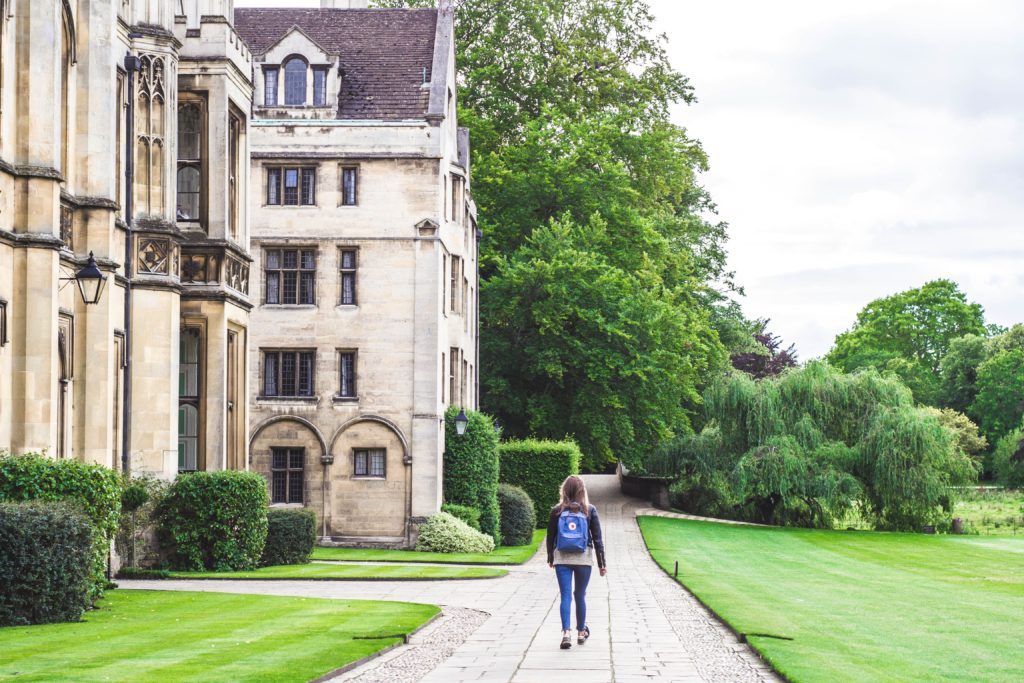
Therefore, be prepared for the challenges of living abroad twice (or even three times). Travelling this much can be hard for some people, but it is part of the program after all – if you accept the position, you accept this part, too.
While you just got used to one new place, one new country, you now go abroad for a few months again. But this is not a bad thing! Every country has its own way of working, of organizing, and of socializing. You will learn new ways of doing things, new ways of thinking, and you will return to your main institution with new results that enrich your research and your personal experience.
Time is moving fast with a Marie Skłodowska-Curie PhD fellowship
As an ESR fellow, you have 3 years to finish your doctorate, while you have to travel (for work of course – what would science be without conference and networking?), to publish, to attend courses, and maybe to take exams. You may want to visit friends and family back home from time to time. Also, you may want to have a bit of a social and private life.
Sometimes, managing your time to get all of these things done seems impossible. With this come tiredness, lack of sleep, stress and many other feelings that I am sure you know well enough. For my part, I could handle it sometimes better, sometimes worse, depending on the day you caught me. Outside home, everything becomes a little harder.
To not get overwhelmed with your tasks, maybe try our tricks for better focus and PhD time management .
A last note
I hope this text helps you to get an idea of what it means to get a “Marie Curie” ESR position. Even though it presents its own challenges (as any other PhD program does), the ESR fellowship is probably one of the best opportunities you can find to do a doctorate.
It offers, in my opinion, the best conditions you can imagine to carry out a PhD.
For me, there were some obstacles I had to overcome. Still, I grew as a person, made new friends and learned a lot (including a new language). I am happy that I applied all these years ago. In the end it all comes down to a great experience and a lot of lessons learned.
About the Author
Mónica Fernández Barcia started a Marie Skłodowska-Curie PhD fellowship 4 years ago. Originally from Salamanca in Spain, she is now in her fourth PhD year in Materials Science at the Technical University of Dresden and about to defend her thesis about electrosynthesis of (bio-)degradable materials.
Mónica’s journey began as a student, when she moved to France for an exchange year and realized that studying abroad could bring her a lot of new experiences and knowledge. She decided to do her PhD in Germany, where many challenges were awaiting: a new language, a new environment, and a new field of research. Mónica found a lot of support in her doctoral program and wants to share her experience with you.
What about you? Are you doing a Marie Skłodowska-Curie PhD fellowship or another international PhD program? What are your experiences? Any advice for newcomers? Share them in the comments below!
19 Comments
Great piece! Just a remark: It’s EURAXESS, not EUROAXESS. Congrats on the PhD!
Thanks Daniel! Good catch, we corrected it.
Hi dear, your article is just magnificent! May be this is a bit less challenging for students of western side. For east students even if they think they are capable to be a part of it, still have to deal with a lot of mess which technically previlige for the students from the developed countries.
Thanks for the comment! I hope you found the article useful.
Hi dear, your article is just magnificent! May be this is a bit less challenging for students from the western side. For east students even if they think they are capable to be a part of it, still have to deal with a lot of mess which is technically a previlige for the students from the developed countries.
Hello, I was wondering if tuition fees are covered as part of the Marie Curie ESR fellowship?
Hi Dee, please check this link:
https://ec.europa.eu/assets/eac/msca/funded-projects/how-to-manage/funded-projects/how-to-manage/general_documents/frequently_asked_questions_to_the_marie_curie_actions_financial_guidelines.pdf
You will find a better answer.
Nice article, I enjoyed reading it!
What kind of questions did they ask her during the interview (personal, academic, etc? How can someone be prepared for the interview? How long did it take? Is it a groupal interview?
Nice to hear that you enjoyed it!
Unfortunately, there is not a single answer to your questions. It is something that depends on a lot of the research group and group leader.
It exists the possibility of a group interview and an individual interview. In my case, it was individual and took many hours since I travelled to Dresden to do the interview and I had the chance to know the Institute, the labs, etc.
The preparation for the interview would be like in any other case or position. What are your studies, your motivation, your skills, both technical and soft skills, why a PhD, your previous experience… But again it depends on what the responsible person of the position is looking for.
I hope you can find this answer helpful.
Monica, thank you most graciously. Did you take some course work or it is just a full research PhD. Also, could you give some advice on interview preparation. Thanks
Hi Hammed! Glad that you like the post. The Ph.D. itself, to get the Dr degree, really depends on the university and their programs, there are countries where you have to teach, others where you have to do some credits, others where you have to pass some exams. This is something completely independent of the Marie Curie fellowship.
Regarding the interview preparation, nothing different than you would do for any other interview. Preparing for it in advance is a must. Take a look at the group and the institution offering the position. Take a look at the project and not just the position you are applying for. In the end, the interview is very personal and depends on your future boss.
I hope it can help you.
Congratulations on finishing the thesis! As someone about to start my journey as an ESR, I found this article quite insightful. Thank you for sharing your experiences with us. 🙂
Best wishes, Chinmaya
Hi Chinmaya,
Thanks for your nice words!
I hope you had a good start as an ESR fellow 🙂 and that you enjoy the path.
Best, Monica
Hello Monica,
A very well crafted amalgam of your experiences. It really does set the right expectations for someone like me, who is about to start a new chapter of my life as an ESR at TU Darmstadt this year. With COVID still prevalent, wonder how the experiences would be different! 🙂
Congratulations on your Doctorate!
It is not until now that I have been able to read this comment. I’m glad to know that you found this article interesting in your situation and I hope that your beginning as a PhD student was good.
I wish you all the best!
Hi!!! Thank you, I really enjoy this piece!!! I love this job and I’m sure that I want to take this kind of direction and to continue my career in research. I’m sorry to bother you but I’d like to ask you some questions. How frequently were you able to go home to family? Is it possible to match that with this job? And how about the salary/quality of life ratio?
I hope everything went well!
Hi Valeria!
really happy to hear that this article is still helping people.
If you are sure this is your direction, go for it!
Regarding your questions, I must say that this is a really personal matter. You can visit your family as much as you want, it only depends on how many holidays your institution gives you and how you organize them. In my case, this was never a problem. I went home many times per year.
Again regarding the salary, the answer is not straightforward. The salary depends on the country. I would say the ratio of salary/life quality is pretty good. But this always depends on personal expenses and self-organisation. In my personal opinion, I would dare to say that economic issues would not be a problem, when accepting this type of fellowship.
I hope this could help you.
Hi Monica, great post and congratulations! I have just been offered an ESR position starting in October. My question is: How far in advance did you receive the employment contract? Does funding start after your first month? Are you paid by your institution or by MCA? Is the amount exactly as stated in the MCA documents?
Thanks in advance,
Thanks for this great article. Still I thought of taking your specific guidance. For your kind information, I’m from India and I started my PhD on 5th of June, 2023 in Prague, Czech republic. I’m curious to know if I’m eligible to apply for the upcoming call. Thank you in advance.
Leave a Reply Cancel reply
Your email address will not be published. Required fields are marked *
Save my name, email, and website in this browser for the next time I comment.
Related Articles

Share your science on PhD Lab!
- Posted by by Kristin The PhD
- 1 minute read
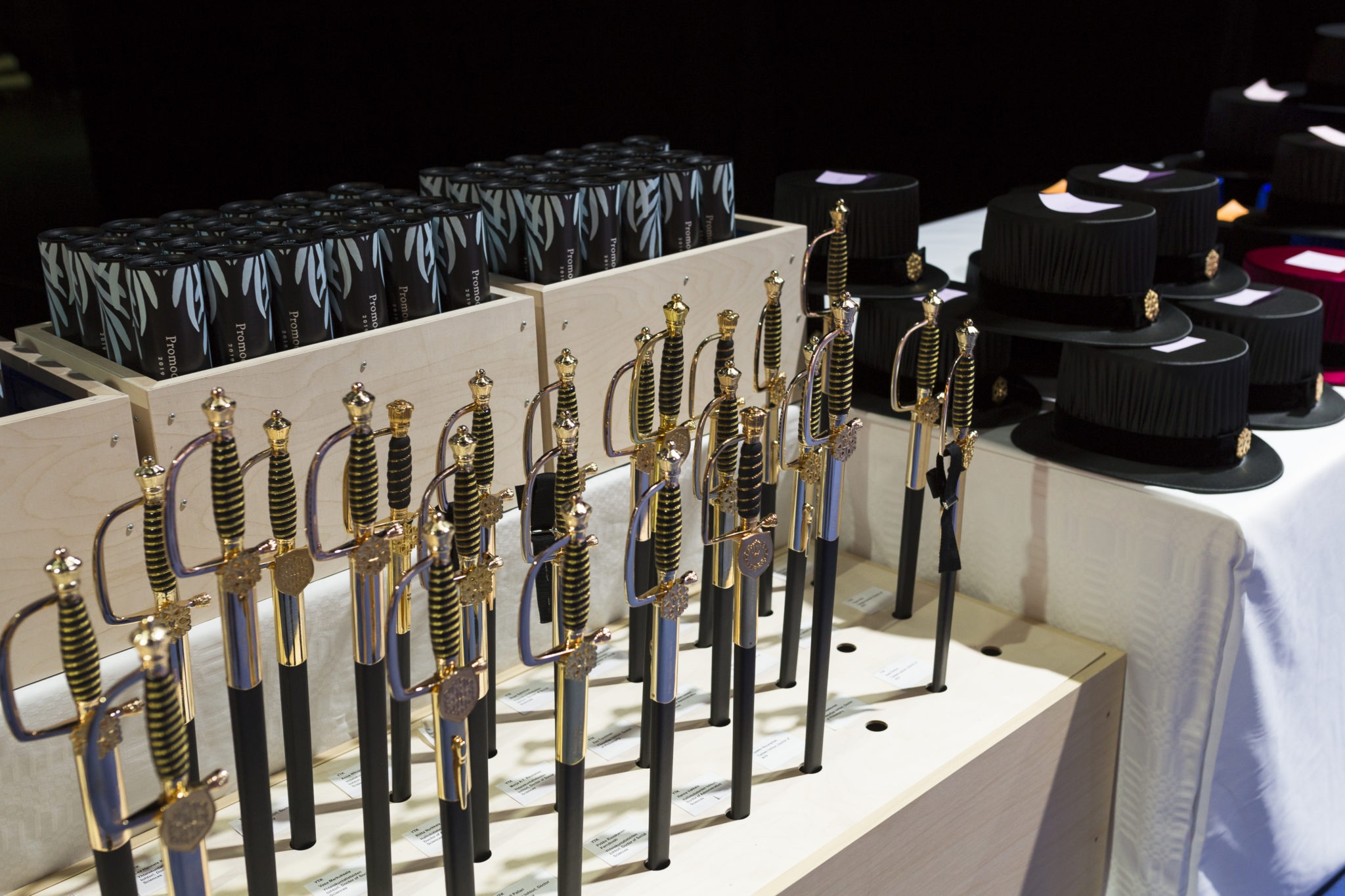
Doing a PhD in Finland
- Posted by by Nicholas Rowe

- Mental Health
The only PhD advice you’ll need
- 4 minute read
Privacy Overview
Marie Skłodowska-Curie Actions
Developing talents, advancing research
Doctoral Networks
Objective of doctoral networks.
The objective of Doctoral Networks is to implement doctoral programmes by partnerships of organisations from different sectors across Europe and beyond to train highly skilled doctoral candidates, stimulate their creativity, enhance their innovation capacities and boost their employability in the long-term.
Types of Doctoral Networks
Doctoral Networks implement doctoral programmes, by partnerships of universities, research institutions and infrastructures, businesses including SMEs, and other socio-economic actors from different countries across Europe and beyond. These doctoral programmes will respond to well-identified needs in various research and innovation areas, expose the researchers to the academic and non-academic sectors, and offer research training, as well as transferable skills and competences relevant for innovation and long-term employability.
Besides standard Doctoral Networks, incentives have been introduced to promote two specific types of doctorates as well.
- Industrial Doctorates. They train PhD candidates who wish develop their skills and step outside academia, in particular in industry and business. Individual participants must be enrolled in a doctoral programme and jointly supervised by the academic and non-academic partners.
- Joint Doctorates. They provide a highly integrated type of international, inter-sectoral and interdisciplinary collaboration in doctoral training leading to a joint doctoral degree or multiple doctoral degrees awarded by the participating institutions. PhD candidates must be enrolled in a joint programme and be jointly supervised.
Who can apply?
Doctoral Networks are open to international consortia of universities, research institutions, businesses, SMEs and other non-academic organisations. They should include
- at least three independent legal entities, each established in a different EU Member State or Horizon Europe Associated Country and with at least one of them established in an EU Member State
- on top of this minimum, other organisations from any country in the world can also join
- specific conditions apply to Industrial and Joint Doctorates
As from 2022, resubmission restrictions will apply for applications that received a score below 80% the previous year.
Candidates wishing to apply for PhD positions under Doctoral Networks should apply to funded Doctoral Network projects by consulting their open vacancies advertised internationally, including on the EURAXESS portal.
What does the funding cover?
All areas of research may be funded and Doctoral Networks can last for up to 4 years (up to 5 years in the case of Joint Doctorate projects).
The duration of each fellowship is between 3 and 36 months (between 3 and 48 months in the case of Joint Doctorate fellowships).
Each beneficiary must recruit at least one doctoral candidate and can also organise secondments for them anywhere in the world.
Researchers funded by Doctoral Networks
- must not have a doctoral degree at the date of their recruitment
- can be of any nationality
- should be enrolled in a doctoral programme during the project
- should spend at least 50% of their time outside academia, for Industrial Doctorates
- should comply with the mobility rules: in general, they must not have resided or carried out their main activity (work, studies, etc.) in the country of the recruiting organisation for more than 12 months in the 36 months immediately before their recruitment date
The EU provides support for each recruited researcher in the form of
- a living allowance
- a mobility allowance
- if applicable, family, long-term leave and special needs allowances
In addition, funding is provided for
- research, training and networking activities
- management and indirect costs
How to apply?
Apply on behalf of an organisation or consortium.
Applications to MSCA Doctoral Networks can be submitted at any time from the opening date of the chosen call. The completed proposal, including all annexes, should be submitted by the specified submission deadline of the chosen call.
Applicants can
- find open and forthcoming calls on our page on funding
- find partners and apply through the Funding and Tender Opportunities Portal
All relevant documents are available on the dedicated call page on the Funding and Tender Opportunities Portal, including
- MSCA work programme and general annexes
- guide for applicants
- specific FAQs
- application and evaluation forms
- online manual on how to submit an application
For more information on the application and evaluation process and contact points for further guidance
- visit our page on how to apply
- visit the European Research Executive Agency website
Apply for PhD vacancies funded by MSCA Doctoral Networks projects
If you are a researcher looking for a PhD position funded by MSCA Doctoral Networks projects, take a look at the list of vacancies published on EURAXESS updated daily.
EURAXESS is the EU's portal for researchers. You will
- find the full requirements of the position you are interested in
- be able to apply directly to the institution or project of your choice
- find advice about visas, pensions, taxation, recognition of qualifications and other issues related to working as a researcher abroad
For more information visit our page on how to apply .
Last updated:
Want to give your feedback about this page?
Thanks for your feedback.
We are happy to see that your experience was positive. Don't forget to share the pages you like with your friends and colleagues.
If you need to ask a question, please contact Europe direct .

- How To Get A Marie Curie Fellowship – A Complete Guide
- Funding a PhD
Getting a research fellowship goes beyond monetary grants and funding. A comprehensive fellowship program looks at your overall growth. You gain invaluable exposure through cross-border knowledge exchange and cross-sector mobility. You network extensively with like-minded researchers, and at the end, you develop employable skills that create breakthroughs in your field of work.
If you have been looking for a PhD grant that supports these ambitious dreams, the Marie Curie Fellowship could be for you. In this guide, you will find information on its funding, eligibility criteria and application process that will help you understand the grant and submit a successful fellowship application.
Marie Curie PhD Grant – What You Should Know?
The Marie Curie PhD grant is offered by Marie Skłodowska-Curie Actions (MSCA), a research support group created by the European Union (EU). The grant offers well-remunerated fellowship opportunities at top research facilities across Europe. It also provides excellent exposure to working in both academic and non-academic sectors.
Besides funding, the Marie Curie Individual Fellowships encourage communication, dissemination, and public engagement to facilitate independent thinking and leadership qualities. Every researcher goes through a series of training, seminars and workshops directed towards widening their research competencies.
At its core, the Marie Curie Fellowship aims to provide the following,
- Take multidisciplinary approaches to individual research and innovation.
- Empower researchers to respond to current and future challenges in their field.
- Allow researchers to have exposure to both academic and non-academic areas.
- Translate theoretical knowledge into tangible products and services.
- Develop research experience and employable skills transferable across industries and sectors.
Ultimately, the mission is to have researchers move from being academically centred to being better prepared for employability in public and private sectors.
You can hear about the experiences of past Marie Curie Individual Fellowship researchers in the below video interview:
Marie Curie Fellowship Activities & Training Program
The fellowship makes sure that its activities aren’t limited to monetary exchange. Instead, it takes a holistic and result-driven approach to research. Therefore, even though researchers in different fields set out on different tangents, they all go through a series of general activities which includes the following:
Career Development Plan
Every individual researcher works in tandem with the supervisor to sketch out a career development plan that defines their research objectives.
It also plans out their training program in a way that aligns with their career needs. Besides these core objectives, a career development plan schedules the production of research publications and conference participation.
Along with attending conferences, researchers get multiple networking opportunities to grow their network such as,
- Engaging in workshops.
- Being a part of network meetings.
- Collaborating with other individual researchers.
- Meeting with participating organisations and beneficiaries to understand their objectives.
At the end of the training period, every researcher must organise a networking event where they share their research outcomes and forge strong partnerships with fellow researchers.
Public Engagement
After you have successfully published your research, it is time to publicise your work. The Marie Curie fellowship allows you to promote your work in front of the public, raising awareness about the research you have done. This not only gets the word out but also allows people to understand the impact of your research on society.
Public engagement forums can take the form of conferences, presentations at schools and universities and participation in research festivals.
One such noteworthy event is the European Researchers’ Night (NIGHT) which is held in September, all across Europe. The event is organised to encourage young minds to take an interest in academia and pursue a successful career in it.

Marie Curie Fellowship Eligibility
The Marie Curie Fellowship accepts PhD applications across all disciplines, irrespective of nationalities. The beneficiaries and partner organisations assign projects for every training network beforehand. Prospective students need to look out for a project that interests them and submit an application.
The eligibility criteria for most projects are as follows,
- Relevant Master’s degree or an equivalent qualification that demonstrates your suitability to undertake a doctoral degree.
- Transcript of grades.
- CV showcasing previous work experience and publications.
- Cover letter explaining why your candidature is the best fit for that project.
- Letter of recommendation or two contact references.
- Certificate of language proficiency, if required by the particular discipline.
Marie Curie Fellowship Funding
Most of your expenses are financed throughout the duration of your project. The funding covers the full cost of accommodation and travel. Besides that, you are also given a monthly living allowance.
Depending on your financial conditions, you may also apply for ‘Family Allowance’ and ‘Mobility Allowance’.

Monthly Living Allowance
Beneficiaries pay you living allowance every month in instalments. The allowance depends upon the country you will study and work in. However, for fellowships starting in 2020, this can be up to €4,880 per month.
Mobility Allowance
The costs that include your travel and other related expenses fall under mobility allowance. For fellowships starting in 2020, this can be up to €600 per month.
Family Allowance
Applicants are eligible for a €500 per month family allowance if they have a family, regardless of whether the family moves with them.
Having a family is proven by one of the following,
- Marriage certificate.
- A formal relationship status which stands equal to that of marriage in another region or country.
- Dependent children.
Marie Curie Fellowship Successful Application – Getting Started
The race to getting a PhD grant is highly competitive. Submitting a well-written proposal is not enough to make the cut. What you need to understand is the priorities of the European Commission and the thinking philosophy of the evaluators.
Structure of Application
The proposal comprises two parts – Administrative form (Part A) & Research proposal (Part B)
I) General information
Write the title of the proposal and define a project acronym. You should also include keywords related to your project and a 2000-character abstract for this section.
II) Administrative data of participating organisations
Specify contact information of the host department and the supervisor. Also, add your own information along with your Researcher ID, if you have one.
III) Budget
Once you fill in the duration of your project, cost to the researcher and the host institution, the budget is calculated automatically.
Ethics assessment is a self-declaration. It requires the applicants to fill in an “ethics issue table”.
I) Excellence
Shed light on the quality, originality and credibility of your research. It should start with an introduction, a description, research aim and an overview of the action. You should also mention the research methodology and approach.
Explain how your research will help make advancement in your field. Explore the mutual benefit opportunity you and your host organisation will receive.
Explore the level of impact that your project will have, first on your research career and second on the European economy and society.
Your proposal should also demonstrate that your project will help advance research and make the research profession popular in the mainstream career.
III) Implementation
This section deals with the allocation of tasks and resources regarding project deliverables and milestones.
Browse PhDs Now
Join thousands of students.
Join thousands of other students and stay up to date with the latest PhD programmes, funding opportunities and advice.

How to Apply for a Marie Curie PhD and Postdoc Fellowship in 2024
Many students struggle to find a detailed step-by-step process about How to Apply for a Marie Curie PhD Fellowship. Getting a research fellowship is more than just securing financial support. A good fellowship program helps you grow professionally by giving you exposure, facilitating cross-border knowledge exchange, and providing networking opportunities. By participating in such a program, you can develop valuable skills and make significant contributions to your field.
If you’re looking for a PhD grant that supports your ambitious goals, the Marie Curie PhD Fellowship could be the perfect opportunity. This guide will provide you with essential information about the fellowship’s funding, eligibility criteria, and application process to help you submit a successful application. If you are looking for a master’s scholarship you may apply for the Erasmus Mundus Scholarship, also funded by the European Union.
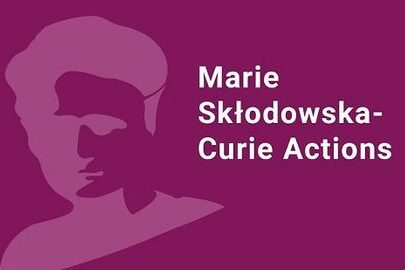
Details about the Marie Curie PhD Fellowship
What is the marie curie phd fellowship.
The Marie Curie Fellowship, offered by Marie Skłodowska-Curie Actions (MSCA) under the European Union (EU), provides well-paid opportunities at top research facilities across Europe. It offers excellent exposure to both academic and non-academic sectors.
In addition to funding, the fellowship promotes communication, dissemination, and public engagement to foster independent thinking and leadership. Researchers participate in various training sessions, seminars, and workshops to enhance their research skills.
Objectives of the Marie Curie PhD Fellowship
- Employ multidisciplinary approaches to research and innovation.
- Empower researchers to tackle current and future challenges in their fields.
- Provide exposure to both academic and non-academic environments.
- Translate theoretical knowledge into practical applications.
- Develop transferable research skills across industries and sectors.
Benefits of the Fellowship Activities & Training
Career development plan.
Each researcher collaborates with a supervisor to create a career development plan outlining research objectives and training programs. This plan also schedules the production of research publications and participation in conferences.
Researchers have multiple networking opportunities, including:
- Attending workshops and network meetings.
- Collaborating with other researchers.
- Engaging with participating organizations and beneficiaries.
At the end of the training period, researchers organize a networking event to share research outcomes and build partnerships.
Public Engagement
The fellowship encourages researchers to promote their work to the public through various forums, such as conferences, school presentations, and research festivals. A notable event is the European Researchers’ Night, held in September across Europe, which inspires young minds to pursue academic careers.
Eligibility Criteria for Marie Curie PhD Fellowship
The Marie Curie Fellowship accepts PhD applications across all disciplines, regardless of nationality. Projects are assigned by beneficiaries and partner organizations, and prospective students must submit applications for projects that interest them.
General Eligibility Criteria
- Relevant Master’s degree or equivalent qualification.
- Transcript of grades.
- CV showcasing work experience and publications.
- Cover letter explaining suitability for the project.
- Letters of recommendation or contact references.
- Language proficiency certificate, if required.
Funding for Marie Curie PhD Fellowship
Most expenses are covered during the project, including accommodation, travel, and a monthly living allowance. Additional allowances are available based on financial needs.
Stipend for Marie Curie PhD Fellowship
- Monthly Living Allowance : Up to €4,880 per month, depending on the host country.
- Mobility Allowance : Up to €600 per month for travel and related expenses.
- Family Allowance : €500 per month for applicants with a family.
How to Apply for a Marie Curie PhD Fellowship
The application process for a Marie Curie Fellowship is competitive. A well-structured and thoroughly written proposal is crucial. Understanding the European Commission’s priorities and the evaluators’ perspectives is essential.
Structure of the Application
Visit the Euraxess portal to check the latest open Ph.D. positions in Europe. The proposal consists of two parts: the Administrative Form (Part A) and the Research Proposal (Part B).
Part A: Administrative and Summary Forms (Completed Online)
- General Information : Include the title, project acronym, keywords, and a 2000-character abstract.
- Administrative Data : Provide contact information for the host department and supervisor, as well as your own information and Researcher ID.
- Budget : The budget is calculated automatically based on project duration and costs.
- Ethics : Complete the ethics issue table for self-declaration.
Part B: Proposal Forms (Download Template from Portal and Upload)
- Excellence : Detail the quality, originality, and credibility of your research. Include an introduction, research aims, methodology, and expected advancements in your field.
- Impact : Explain the impact of your project on your research career and the European economy and society. Demonstrate how your project will advance research and popularize the research profession.
- Implementation : Outline the allocation of tasks and resources, project deliverables, and milestones.
Looking to maximize your chances of acceptance?
Consider using our Professional Services to polish your application and stand out from the crowd.
For detailed videos on relevant opportunities check out:
Frequently Asked Questions (FAQs)
Is it hard to get a marie curie phd fellowship.
The Marie Curie Fellowship is highly competitive. To increase your chances, make sure your application highlights your academic and professional achievements, goals, and alignment with the fellowship’s objectives.
How much do Marie Curie PhD fellowships pay?
Marie Curie fellowships offer a monthly living allowance of up to €4,880, a mobility allowance of up to €600, and a family allowance of €500 per month if applicable.
Who is eligible for a Marie Curie Fellowship?
The fellowship is open to researchers of all nationalities with a relevant Master’s degree or equivalent qualification. Applicants must meet the specific eligibility criteria outlined by the fellowship.
How do I get a Marie Curie Fellowship for a PhD?
To apply for a Marie Curie Fellowship, you need to find a project that interests you, meet the eligibility criteria, and submit a well-structured proposal through the official portal.
Which countries offer Marie Curie fellowship?
Marie Curie fellowships are supported by 11 EU Member States: Austria, Belgium, Bulgaria, Czech Republic, Cyprus, France, Italy, Lithuania, Poland, Slovakia, and Sweden. These countries offer funding schemes for applicants with a Seal of Excellence certificate.
How long is a Marie Curie fellowship?
The duration of a Marie Curie fellowship varies depending on the specific project and research plan. It typically spans the length of the research project or doctoral program.

RELATED ARTICLES
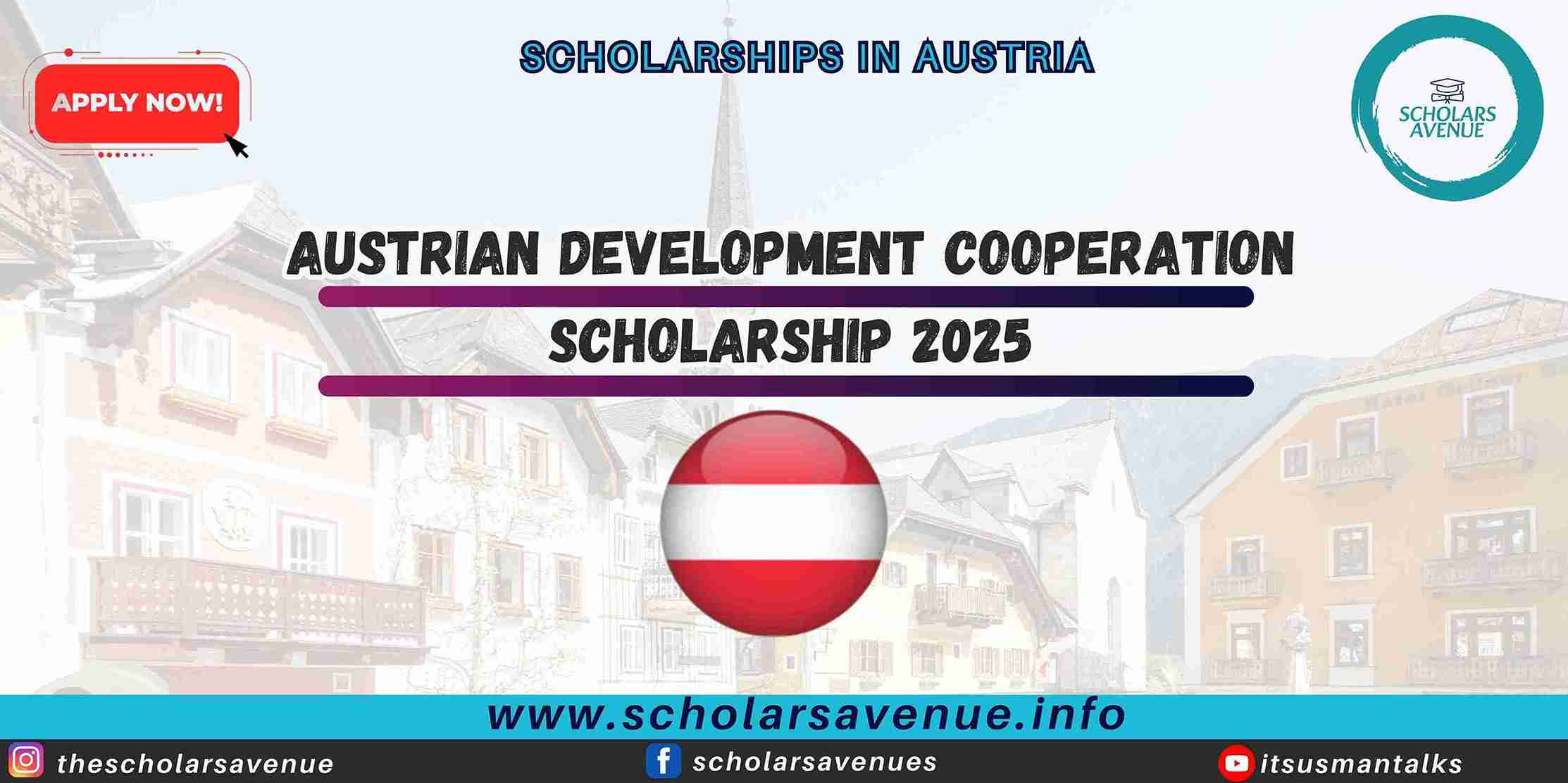
Austrian Development Cooperation Scholarship 2025
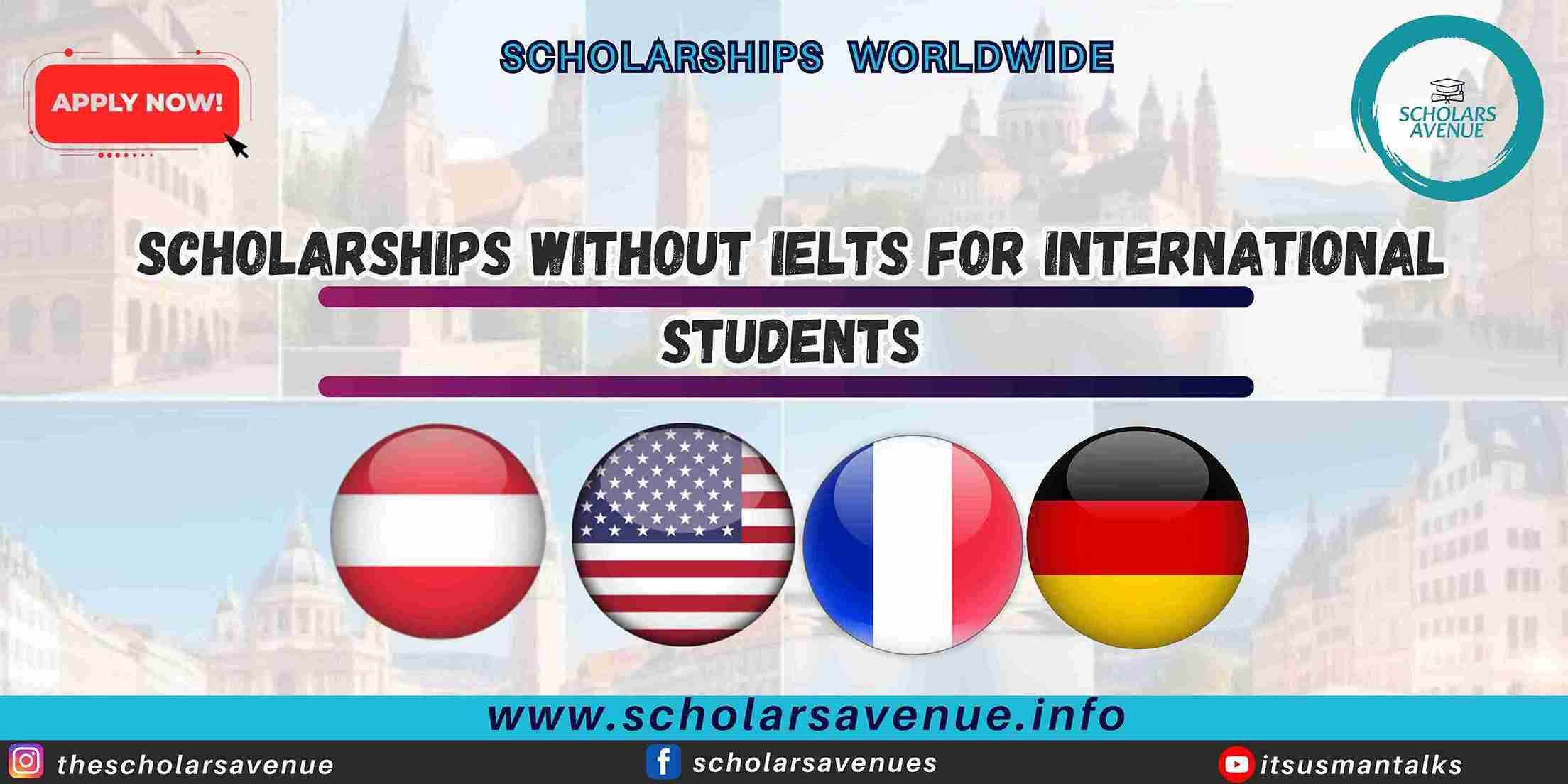
Scholarships without IELTS for International Students 2025
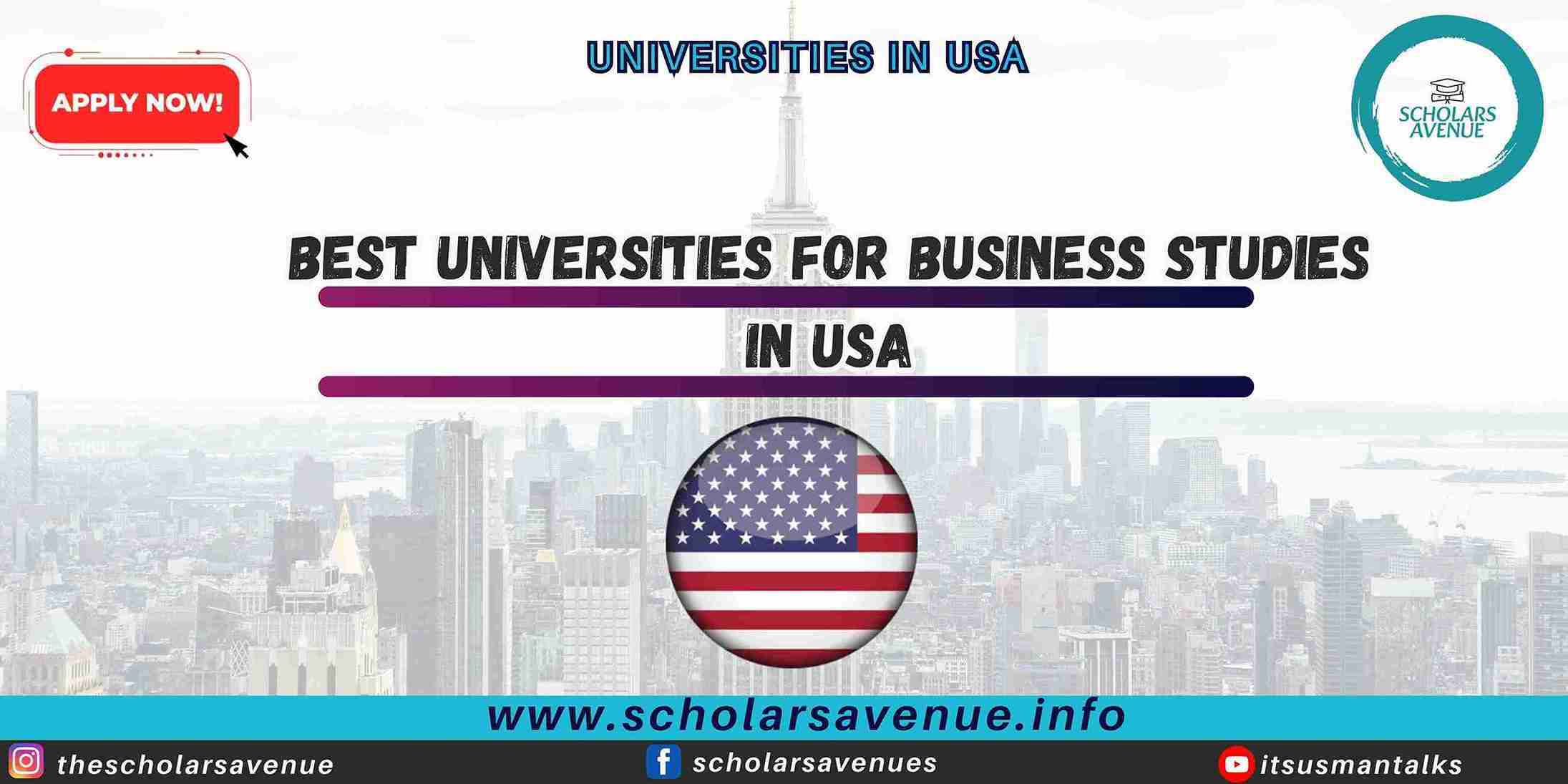
Best Universities for Business Studies in USA
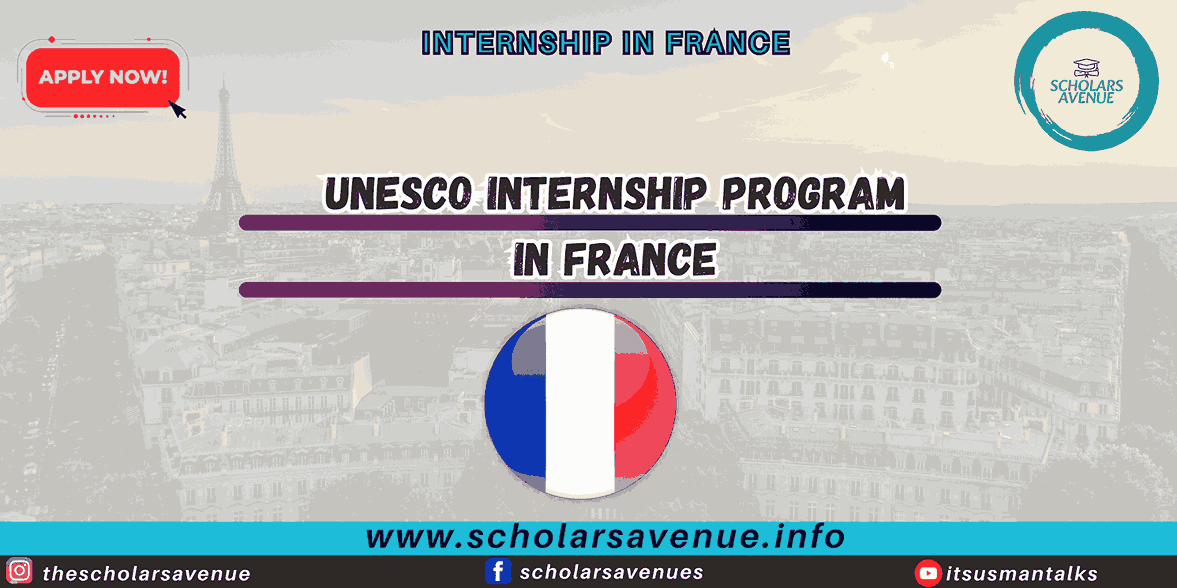
UNESCO Internship Program in France 2025
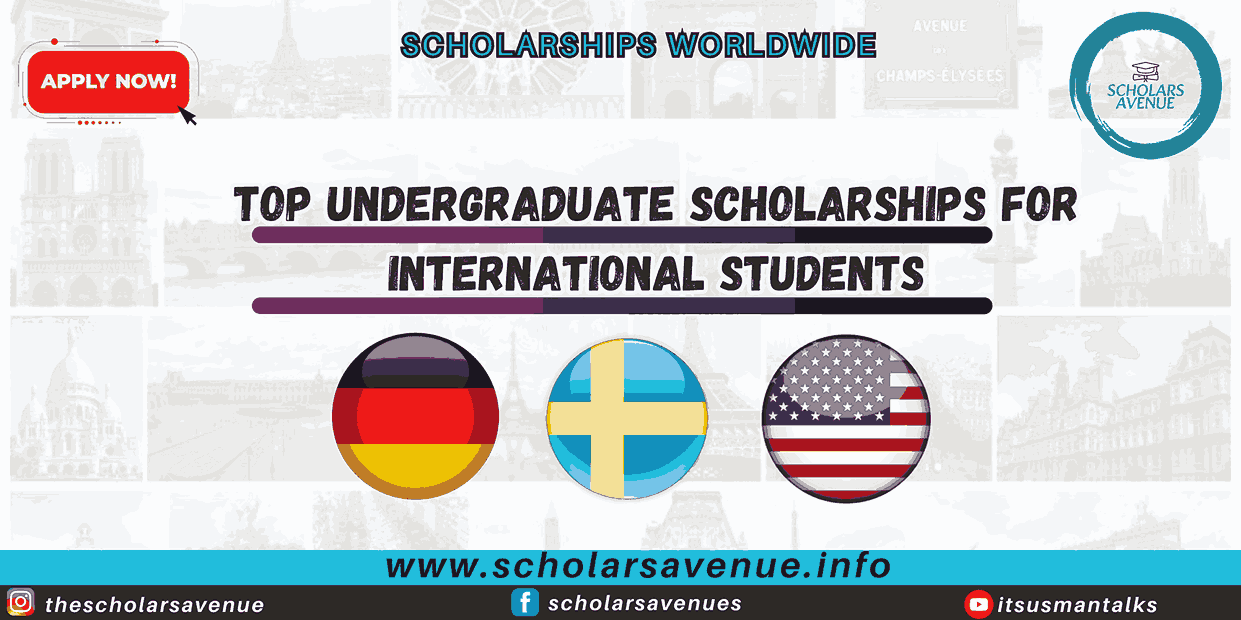
Top Undergraduate Scholarships For International Students

Fully Funded HZB Summer Student Program in Germany 2025
Scholarships by countries.
- Scholarships in UK
- Scholarships in USA
- Scholarships in Germany
- Scholarships in France
- Scholarships in Finland
- Scholarships in Europe
- Scholarships in England
- Scholarships in Egypt
- Scholarships in Dubai
- Scholarships in Denmark
- Scholarships in Colombia
- Scholarships in China
- Scholarships in Canada
- Scholarships in brazil
- Scholarships in Belgium
- Scholarships in Azerbaijan
- Scholarships in Australia
- Scholarships in Asia
- Scholarships in Africa

Join Our Social Media
Latest opportunities.
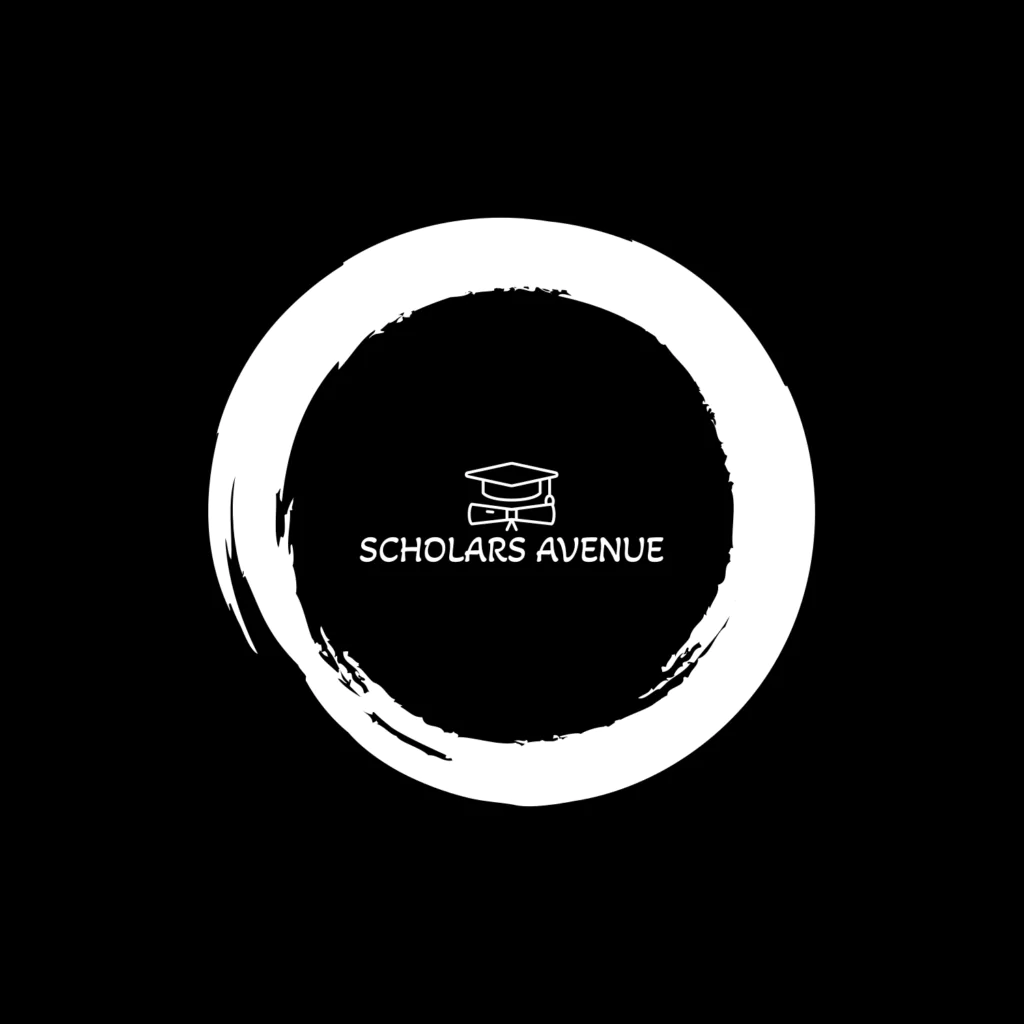
Scholarsavenue is world’s leading opportunities Discovering platform
Quick Links
- Advertise With Us
Opportunities
- Competitions
- Conferences
- Fellowships
- Internships
- Scholarship Recipient
Helpful Resources
- Terms of Use
- Privacy Center
- Security Center
- Accessibility Center
© 2024 Scholarsavenue. All Right Reserved.

Thanks, I’m not interested

Mastercard Foundation Scholars Program at the University of Oxford

Academic Futures Scholarships at Oxford University

Durham University Business School: PhD Studentships for International and Home Candidates

Fully Funded 4-Year PhD Studentships in Biomedical Sciences at the University of Edinburgh

World Economic Forum Early Careers Programme: Spring 2025 Cohort: Apply Now for Exciting Opportunities in Geneva and Beijing

Join Women Deliver: Remote Opportunity as Director of Partnerships and Resource Mobilization

Become Part of ASCEND’s Climate Action Team
Remote internship opportunity: adaptation division, unfccc.

Senior Program Officer, Program Development - World University Service of Canada (WUSC)
- Internships

Call for Applications | Become a 2025 UNICEF Youth Foresight Fellow(Fully-funded)

Apply for the Commonwealth Startup Fellowship(Fully-funded by Imperial College London and Commonwealth Scholarship Commission)

Salzburg Global International Law Fellows Network: Safeguarding Democracy and the Rule of Law - The Crucial Role of International Lawyers

Centre for the Governance of AI (GovAI) Summer Fellowship 2025: Apply Now!

Apply Now for the Graduate Study Programme at United Nations Office at Geneva

Apply Now: 2025 World Bank Group Youth Summit Pitch Competition – Win a Fully Funded Trip to Washington, D.C.!

Applications Now Open for Yenching Global Symposium 2025: A Fully-Funded Conference for Emerging Leaders of All Nationalities

One Young World Summit 2025 in Munich

Call for Applications: United Nations OHCHR-EAA Youth Rights Academy (Fully Funded)

Call for Proposals: United Nations Voluntary Trust Fund for Victims of Trafficking in Persons

ISRF Early Career Fellowships: Up to €81,500 for Interdisciplinary Research

Accountable Adaptation Fellowship by the Africa Research and Impact Network (ARIN) and University College London (UCL).

Spencer Foundation: Large Research Grants on Education Program
- PROPOSAL WRITING
- TIPS FOR UN JOBS
- AUSTRALIA & OCEANIA
- ADVERTISE WITH US
- POST EVENT / OPPORTUNITIES
- Privacy Policy
Select Page
Marie Skłodowska-Curie Actions (MSCA) 2024 Doctoral and Postdoctoral Fellowships now open for applications(Fully-funded opportunity for 10,000 EU and non-EU researchers)
Posted by admin | Jun 1, 2024 | Africa , America , Asia , Australia and Oceania , Continent , Europe , Fellowship , Jobs , Latin America and the Caribbean , Middle East and North Africa , PhD , South America | 0 |

Deadline: September 11, 2024
The Marie Skłodowska-Curie Actions (MSCA) are now accepting applications for Postdoctoral Fellowships. These fellowships aim to enhance the creative and innovative potential of researchers holding a PhD through advanced training, international, interdisciplinary, and inter-sectoral mobility. The program is open to excellent researchers of any nationality.
Fellowship Overview
MSCA Postdoctoral Fellowships provide an opportunity for researchers to:
- Acquire new skills through advanced training.
- Participate in international, interdisciplinary, and inter-sectoral mobility.
- Work on research and innovation projects in both academic and non-academic sectors.
- Reintegration in Europe for displaced researchers or those seeking to restart their careers.
Eligibility
- Researchers must hold a PhD.
- Fellowships are available for international mobility to or between EU Member States, Horizon Europe Associated Countries, and non-associated Third Countries.
- Applications must be submitted jointly by the researcher and a beneficiary in either the academic or non-academic sector.
Fellowship Types
- Open to researchers of any nationality.
- Duration: 12 to 24 months.
- Projects can be undertaken in EU Member States or Horizon Europe Associated Countries.
- Open to European nationals or long-term residents.
- Duration: Outgoing phase of 12 to 24 months in a non-associated Third Country, followed by a 12-month return phase to an EU Member State or Horizon Europe Associated Country.
Special Conditions
- Specific eligibility criteria apply for fellowships in research areas covered by the Euratom Research and Training Programme 2021-2025.
- April 23, 2024 : Launch of the call for proposals
- September 11, 2024 : Deadline for submitting proposals
- February 2025 : Notification of call results (TBC)
- April 2025 : Grant agreement signature for successful projects (TBC)
- April 2025 : Start of first EU-funded projects (TBC)
Additional MSCA Opportunities
The 2024 COFUND call, with a budget of €104.8 million, supports organizations in creating or enhancing doctoral and postdoctoral programs. It promotes high standards and excellent working conditions.
- Call Opens : April 23, 2024
- Call Closes : September 26, 2024
Doctoral Networks
The 2024 Doctoral Networks call, with a budget of €608.6 million, aims to recruit and train doctoral candidates in academia and other sectors.
- Call Opens : May 29, 2024
- Call Closes : November 27, 2024
Staff Exchanges
The 2024 Staff Exchanges call, with a budget of €99.5 million, promotes international, inter-sectoral, and interdisciplinary exchanges.
- Call Opens : September 19, 2024
- Call Closes : February 5, 2025
MSCA4Ukraine
An additional €10 million will support displaced researchers from Ukraine. The next call will open in May 2024.
Coordination and Support Actions
Feedback to policy.
A call with a budget of €2 million will foster stronger thematic links between MSCA projects.
- Call Opens : April 25, 2024
- Call Closes : September 3, 2024
Cooperation Among MSCA National Contact Points
This project facilitates trans-national cooperation between NCPs.
- Call Opens : May 16, 2024
- Call Closes : September 4, 2024
International Cooperation
Supporting international cooperation within MSCA, this call will coordinate promotion channels at local levels.
- Call Opens : May 14, 2024
Researchers at Risk
This call provides support based on needs identified in previous initiatives.
- Call Opens : September 12, 2024
- Call Closes : January 14, 2025
The MSCA program funds excellent research and innovation, equipping researchers with new knowledge and skills through training and exposure across borders. It promotes high standards for recruitment and working conditions and contributes to the reform of research assessment systems.
How to Apply
For full details, visit the call page on the EU Funding & Tenders portal .
Additional Resources
- Guidance on how to apply
- Resources for applicants from the European Research Executive Agency
- Contact MSCA National Contact Points
Prepare your application and join a community dedicated to advancing research and innovation.
- https://marie-sklodowska-curie-actions.ec.europa.eu/calls/msca-postdoctoral-fellowships-2024
- https://marie-sklodowska-curie-actions.ec.europa.eu/news/msca-announces-new-call-dates-for-2024-calls
Share this:
Related posts, apply to be a development officer with the youth climate justice fund.
2nd August 2024
Calling All African Fintech Innovators: Apply for the Timbuktoo Fintech Startup Accelerator Programme!
6th June 2024
Empowering the Next Generation of African Leaders: Archbishop Tutu Leadership Programme
23rd August 2024

Mid-Career Fellowships – Researchers and Promoting Public Engagement
15th July 2024
Recent Posts
- Join Women Deliver: Remote Opportunity as Director of Partnerships and Resource Mobilization 23rd December 2024
- Become Part of ASCEND’s Climate Action Team 23rd December 2024
- Mastercard Foundation Scholars Program at the University of Oxford 23rd December 2024
- Academic Futures Scholarships at Oxford University 23rd December 2024
- Flanders Trainee Program: Your Gateway to Global Impact 23rd December 2024
Marie Skłodowska-Curie Actions
Policy, strategy, how to apply and work programmes.
Policy and strategy
The Marie Skłodowska-Curie Actions are the EU flagship programme for doctoral and postdoctoral training, equipping researchers with new knowledge and skills through mobility across borders and exposure to different sectors and disciplines.
They enhance researchers’ training and career development systems and institutional and national recruitment processes in line with the European Charter for Researchers and the Code of Conduct for the recruitment of researchers.
The Marie Skłodowska-Curie Actions fund the development of excellent doctoral and postdoctoral training programmes and collaborative research projects. They achieve a structuring impact on higher education institutions, research centres and other organisations way beyond academia by widely spreading excellence and setting standards for high-quality researcher education and training.
By doing so, they enhance the visibility and attractiveness of these organisations, not only across the European Research Area (ERA) , but also worldwide.
Marie Skłodowska-Curie Actions will also contribute to the orientations identified in the Horizon Europe strategic plan .
Areas of intervention
- supporting researchers in their training, skills and career development
- fostering trans-national, cross-sectoral and interdisciplinary mobility
- funding excellent doctoral and postdoctoral programmes, collaborative projects
- promoting public outreach
Policy information
Marie Skłodowska-Curie Actions website
Apply for funding
All funding information and details on how to apply are on the Funding and Tenders portal .
Work programme
Funding opportunities under Horizon Europe are set out in work programmes, which cover the large majority of support available.
Marie Skłodowska-Curie Actions work programme
Funding opportunities under Horizon Europe are set out in work programmes, which cover the large majority of support available.
- 6 DECEMBER 2022
- 16 JUNE 2021

- Friday 7 June 2024, 09:30 - 12:30 (CEST)
- Online only
- Live streaming available
- Friday 15 November 2024, 10:00 - 12:30 (CET)
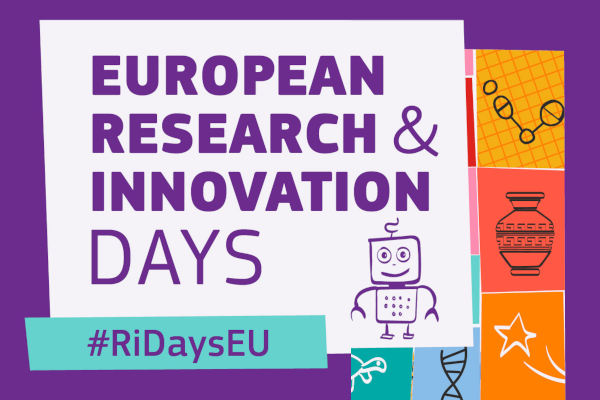
- Conferences and summits
- Wednesday 28 September 2022, 13:45 - Thursday 29 September 2022, 18:00 (CEST)
Share this page
- European Commission
Accessibility tools
- Go to content
Service tools
- Legal notice
Language selector
- Current language en
Navigation path
- Research & Innovation
- Marie Skłodowska-Curie Actions
- MSCA for Industry/SME
- Quick Guide
- Jobs for you
- How to apply
- How to manage my project
- Publish your Marie Skłodowska-Curie actions funded job vacancies
- MSCA funded projects
- Publications & documents
- Testimonials
- Success stories

Registrations to the Conference 'Future of the doctorate' are open
The event (28-29 May 2015) will gather about 250 research policy-makers, renowned scientists and stakeholders from across Europe.

Marie Curie Fellow Leads Analysis of the Genomes of Malaria-Carrying Mosquitoes
Dr Robert Waterhouse has published his findings on malaria-carrying mosquitoes genome analysis in 'Science'.

MSCA:Bridging the gap
MSCA are promoting Business-Academic collaborations that focus on giving researchers adequate skills and opportunities to contribute to SME and other business growth.

Researchers' Night action
The European Researchers' Night action supports public events that bring researchers closer to society, showcase science and its impact on our daily lives, and encourage young people to start a research career.

Nobel Prize winner
"If I hadn’t gotten that I would probably have dropped out” - The former MSCA fellow and Nobel Prize winner Stefan Hell, stated that his MSCA fellowship had been a crucial part in his research career.

Winners of the prizes
The winners of the 2014 MSCA prizes are: Maanasa Raghavan, Shane Bergin and Sarah Bohndiek!
Marie Skłodowska-Curie actions - Research Fellowship Programme
The Marie Skłodowska-Curie actions, named after the double Nobel Prize winning Polish-French scientist famed for her work on radioactivity, support researchers at all stages of their careers, irrespective of nationality. Researchers working across all disciplines, from life-saving healthcare to 'blue-sky' science, are eligible for funding. The MSCA also support industrial doctorates, combining academic research study with work in companies, and other innovative training that enhances employability and career development.
In addition to generous research funding, scientists have the possibility to gain experience abroad and in the private sector, and to complete their training with competences or disciplines useful for their careers. More information about various funding schemes and requirements for applying is available below.

- H2020-MSCA-RISE-2015 Deadline:28/04/2015
See all open calls

Direct access to Marie Skłodowska-Curie Actions
- Innovative Training Networks (ITN)
- Individual fellowships (IF)
- Research and Innovation Staff Exchanges (RISE)
- Co-funding of Regional, National, and International Programmes (COFUND)
- European Researchers’ Night (NIGHT)
Quick links
- MSCA for industry and SME stakeholders
- EU Contest for Young Scientists
- Science in school
- Understanding the Seventh Framework Programme (2007-2013)
RSS and social media
Last update: 12/03/2015 | Top

Research and Innovation Services
Marie Skłodowska-Curie Actions

Marie Skłodowska-Curie Actions (MSCA) fellowships offer researchers the opportunity to enhance their careers through advanced training, and cross-border and cross-sector mobility.
MSCA fellowships are open to all research and innovation areas, from basic research to market take-up and innovation services, with topics chosen by applicants in a fully bottom-up manner. There are 2 main types of MSCA contracts:
MSCA Doctoral Networks
- MSCA Postdoctoral Fellowships
2023 MSCA Doctoral Networks and Postdoctoral Fellowship programmes are funded by the UK Research and Innovation (UKRI) Horizon Europe guarantee funding. See our Funding for current projects section below for further information.
MSCA Doctoral Networks (previously known as Innovative Training Networks) fund doctoral programmes for early-stage researchers to respond to current and future challenges.
They enable researchers to convert their knowledge and ideas into products and services for economic and social benefit and provide transferable skills training to enhance their careers.
The programme is set up by partnerships of organisations from across Europe and beyond.
Eligibility criteria
Early-stage researchers (Fellows) are typically enrolled on a PhD programme. Recruited researchers should be enrolled on a doctoral programme during the project but should not have a doctoral degree at the date of their recruitment.
Researchers funded by Doctoral Networks can be of any nationality. Candidates should not have lived or carried out their main activity in the UK for more than 12 months in the 3 years immediately before their recruitment.
Candidates can apply for PhD vacancies funded by MSCA Doctoral Networks projects through the EURAXESS portal.
What does the funding cover?
The duration of each fellowship is between 3 and 36 months. Researchers are provided with a living allowance, a mobility allowance, and if applicable, a family allowance (if married and/or with responsibility for dependent children). Allowances include the cost of employment for UCL, employer National Insurance (NI) and pension contributions.
F ellows are paid a fixed salary during the fellowship with no annual increments and the current London Allowance, which qualifies for adjustments. There are 4 possible levels of basic salary, as shown in the table below, depending on whether the Fellow has dependents and if they opt out of the SAUL pension scheme. You can find out more about Pensions on the UCL HR website.
Salaries are based on MSCA-awarded rates from the Work Programme 2023-24. If the appointment is for a Doctoral Network project awarded for a different Work Programme you should contact our Award Services Post-Award team at [email protected] for costing advice.
MSCA Postdoctoral Fellowships
MSCA Postdoctoral Fellowships support researcher careers and foster excellence in research. The fellowships are aimed at researchers with a PhD who wish to carry out their research activities abroad, acquire new skills and develop their careers. They help researchers to gain experience in other countries, disciplines and non-academic sectors.
There are 2 types of MSCA Postdoctoral Fellowships:
- European Postdoctoral Fellowships , where the Fellow is based here at UCL.
- Global Postdoctoral Fellowships , where the fellow is seconded to a third country for 1-2 years and has a mandatory third-year reintegration at UCL.
MSCA Postdoctoral Fellowships will be open to excellent researchers of any nationality. Projects are solely awarded to the individual and UCL.
Candidates will need to identify a UCL Principal Investigator (PI) to act as their Supervisor and contact them to find out whether they would support you carrying out your fellowship in their group. If accepted, the researcher and PI should work together to develop and submit the proposal on the European Commission's Funding and Tenders Portal by the call deadline.
MSCA Postdoctoral Fellowship opportunities are also advertised on the EURAXESS portal.
The fellowships will be open to excellent researchers of any nationality. The projects are solely awarded to the individual and UCL. The 2 mail sub-awards are European Fellowships (EF), where the fellow is based here at UCL, and Global Fellowships (GF), where the fellow is seconded to a third country for 1-2 years and has a mandatory third-year reintegration at UCL.
For EF, each fellow’s contract comprises living, mobility and family allowances (dependents at the time of recruitment or during the project) as awarded by the scheme. Due to the nature of GF projects, the salary and top-up allowances will need to be pre-costed. Contact the Award Services Post-Award team at [email protected] in advance for advice.
All allowances awarded include the cost of employment for UCL, employer NI and pension contributions, as per EC regulations highlighted in section 1.1 “Applicable unit contributions” of the MSCA WP. Annual allowances are shown in the table below:
These rates relate to the MSCA awarded rates from the WP 2023-24. If the appointment is for a PF project awarded for a different WP these rates should not be used. Contact [email protected] for a bespoke costing.
Important: if the Fellow is already a UCL employee a bespoke costing will need to be done. Contact the Award Services Post-Award (Europe) team [email protected] for advice.
Fellows will be paid the current London Allowance which will qualify for adjustments. There are 4 possible levels of basic salary depending on whether they have dependents and whether they opt out of USS pension membership. All employees are auto-enrolled in the pension scheme, the Fellows will need to contact HR to opt out. You can find out more about Pensions on the UCL HR website. Costings include the living, mobility and family (if applicable) allowances.
Funding for current projects
MSCA projects are currently funded by UKRI Horizon Europe guarantee funding . For more information about the UKRI Horizon Europe guarantee, visit our Horizon Europe webpage.
Information on allowances can be found in section 1.1, ‘Applicable unit contributions’, of the EC MSCA 2023-2025 Work Programme (pdf), via the European Commission website
The 2024 conversion rate is £1 = €1.148787 (or €1=£0.87048). The rate is revised by UKRI every year. UCL applies a conservative rate of 92% and a one-off salary payment will be organised at the end of the fellowship if a salary balance is due.
European Commission allowances
The EU contribution under MSCA is based on unit costs expressed in person-months. Costs are indicated in EUR (€) in the tables below:
Researcher costs per month
* A country correction coefficient applies to living allowance. This coefficient is the 1 applicable to the researcher's host organisation as listed in the MSCA Work Program. For 2023-2024, the UK’s country correction coefficient is 136.9%.
Institutional costs per month
Page last updated: June 2024

IMAGES
COMMENTS
The Marie Skłodowska-Curie Actions are the European Union’s reference programme for doctoral education and postdoctoral training. They foster research across borders, sectors and disciplines and boost the economy.
Apply for MSCA PhD vacancies. If you are an individual researcher looking for a PhD position funded by the MSCA, take a look at the list of vacancies published on EURAXESS, which is updated daily. EURAXESS is the EU's portal for researchers.
Dec 15, 2019 · Mónica Fernández Barcia started a Marie Skłodowska-Curie PhD fellowship 4 years ago. Originally from Salamanca in Spain, she is now in her fourth PhD year in Materials Science at the Technical University of Dresden and about to defend her thesis about electrosynthesis of (bio-)degradable materials.
Apply for PhD vacancies funded by MSCA Doctoral Networks projects. If you are a researcher looking for a PhD position funded by MSCA Doctoral Networks projects, take a look at the list of vacancies published on EURAXESS updated daily. EURAXESS is the EU's portal for researchers. You will. find the full requirements of the position you are ...
The Marie Curie PhD grant is offered by Marie Skłodowska-Curie Actions (MSCA), a research support group created by the European Union (EU). The grant offers well-remunerated fellowship opportunities at top research facilities across Europe.
Funding for Marie Curie PhD Fellowship. Most expenses are covered during the project, including accommodation, travel, and a monthly living allowance. Additional allowances are available based on financial needs. Stipend for Marie Curie PhD Fellowship. Monthly Living Allowance: Up to €4,880 per month, depending on the host country.
Jun 1, 2024 · Deadline: September 11, 2024 The Marie Skłodowska-Curie Actions (MSCA) are now accepting applications for Postdoctoral Fellowships. These fellowships aim to enhance the creative and innovative potential of researchers holding a PhD through advanced training, international, interdisciplinary, and inter-sectoral mobility.
The Marie Skłodowska-Curie Actions fund the development of excellent doctoral and postdoctoral training programmes and collaborative research projects. They achieve a structuring impact on higher education institutions, research centres and other organisations way beyond academia by widely spreading excellence and setting standards for high ...
Dec 3, 2015 · Marie Skłodowska-Curie actions - Research Fellowship Programme. The Marie Skłodowska-Curie actions, named after the double Nobel Prize winning Polish-French scientist famed for her work on radioactivity, support researchers at all stages of their careers, irrespective of nationality.
Marie Skłodowska-Curie Actions (MSCA) fellowships offer researchers the opportunity to enhance their careers through advanced training, and cross-border and cross-sector mobility. MSCA fellowships are open to all research and innovation areas, from basic research to market take-up and innovation services, with topics chosen by applicants in a ...